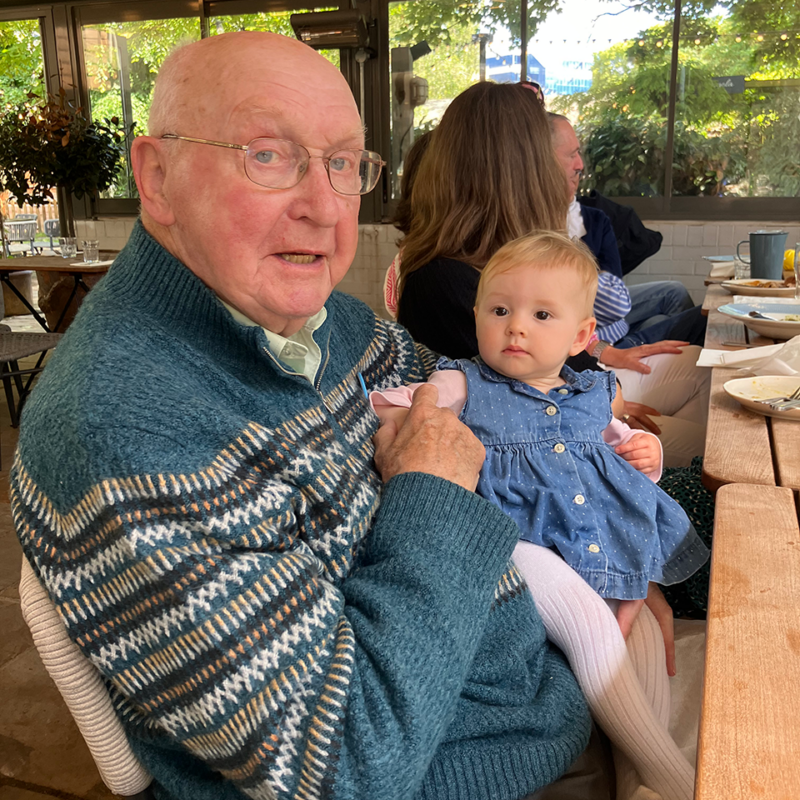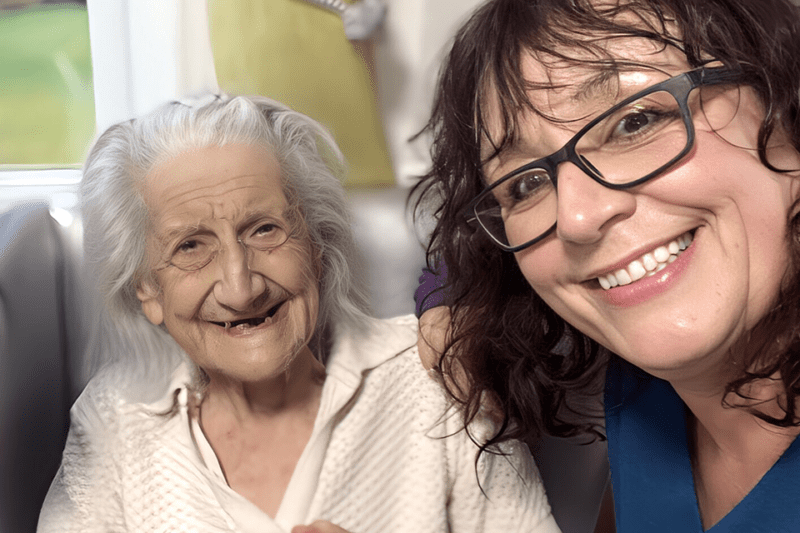
Caring for Dad, from near and afar – Simon’s story
Simon, who has lived in New Zealand for two decades, discusses how he cares for his dad who has Alzheimer’s disease and lives alone in the UK.
Caring for a person with dementia when you do not live nearby can be challenging. For example, you may not be able to pop in regularly or respond to issues quickly. However, you can still play an important part in supporting the person. For example, you could:
Caring from afar often involves coordinating lots of tasks. But it is equally important that you and the person with dementia spend time connecting and enjoying each other’s company, no matter the distance.
It is important for the person with dementia to make a lasting power of attorney (LPA) as soon as possible. This is a legal process where they appoint one or more trusted people to make decisions on their behalf, in their best interests, if they lack the mental capacity to do so themselves.
There are two types of LPA:
Being named on the person’s LPA means that if they cannot make a decision about their finances, property, health or care issues because they lack capacity, you can do it for them, even if you do not live nearby.
If the person is willing, find out where they keep important documents like their LPA and Will. With their permission, you could also keep a record of login details and passwords for bank/building society/investment accounts, insurance policies and utility accounts, including mobile phone and broadband, so you can access them in a situation where you cannot help in person. Ensure they are kept in a secure place.
Find out whether the person has an advance care plan (ACP), advance statement, advance decision to refuse treatment (ADRT) or do not attempt CPR (DNACPR) instruction. If so, keep copies of these documents, as they are official statements of their wishes regarding future medical treatment and care – and ADRTs and DNACPRs are legally binding.
It is helpful to keep all the information you have about the person with dementia in one place, such as a box file or a folder on your computer, so you can find it easily if your help is needed – for example, if the person becomes unwell. You could include:
These are just some ideas. Every person with dementia has individual needs, so take time to think about any specific information to include that would make it easier for you to care for them from a distance.
If possible, visit the person’s home to ensure that it is safe, comfortable and manageable for them. If you cannot visit, ask a local family member or friend to take a look.
Whenever you visit the person with dementia, reassess their circumstances:
Ask the person themselves, as well as their local family, friends, health and social care professionals, if they have any worries about their health, living arrangements or ability to cope.
If you are concerned about the person’s safety if they leave home alone, you could think about using a form of tracking – with their knowledge and consent – such as a phone app, smartwatch or tag attached to their handbag or coat. You could also sign up for:
If the person with dementia is in a care home, hospital or hospice, you can still support them even if you cannot often visit in person.
Find out about the care setting’s routine, such as mealtimes, bedtime, medication rounds and activities, so that you can contact the person at the most suitable time. Ask about the best way to do this – do they have their own phone, or should you phone a member of staff?
Ask to be kept informed about activities the person has taken part in (eg an outing, music activity or gardening) so that you can talk to them about it. You could also tell the care home about activities that the person might enjoy, such as pet therapy or visits from local school choirs, and help to arrange these.
Talk to staff about how you can be kept informed about the person’s health and wellbeing, and how you can provide information or feedback. Is there a particular time when the health and social care team visits to review the person’s care? Make sure they know if you have LPA and ask if they will let you know if there is an incident like a fall.
If other family members or friends live nearby, ask them to contact you after visiting to give you an update.
If the person with dementia has other family members or friends living nearby who help with their care, these people may need support themselves. You could, for example:
If you are caring from a distance, you might be juggling many things, such as work and family life, as well as your caring responsibilities. You might feel uninformed about how the person with dementia is managing, excluded from decisions, or guilty about not being nearby. You might have financial worries if you are paying – fully or in part – for the person’s care.
Think about the practicalities of the support you can offer, such as the travel time and expenses involved. If you work, consider talking to your employer so they can support you, for example by allowing flexible working so you can visit the person more often.
If you are feeling overwhelmed, talk to your GP about accessing support such as carers’ groups. You could request a carer’s assessment to discuss what would help you in your caring role – even if you do not live near the person with dementia, you are still their carer. You could also speak to a dementia specialist Admiral Nurse: please see Sources of support.
Above all, be realistic about the support you can offer, and do not be afraid to talk to other family members and friends and ask for help – caring for a person with dementia is often a joint activity, and when you pull together, life is easier for everyone.
To speak to a dementia specialist Admiral Nurse about caring from a distance or any other aspect of dementia, please call our free Helpline on 0800 888 6678 (Monday-Friday 9am-9pm, Saturday and Sunday 9am-5pm or email helpline@dementiauk.org. To book a phone or video appointment with an Admiral Nurse, please visit dementiauk.org/book
Our virtual clinics give you the chance to discuss any questions or concerns with a dementia specialist Admiral Nurse by phone or video call, at a time that suits you.

Simon, who has lived in New Zealand for two decades, discusses how he cares for his dad who has Alzheimer’s disease and lives alone in the UK.

Janet shares her experience caring for husband Ben and how they maintained the joy of Christmas after his diagnosis.

Shara reflects on her journey caring for Anna, her mother, who was diagnosed with vascular dementia in 2016.